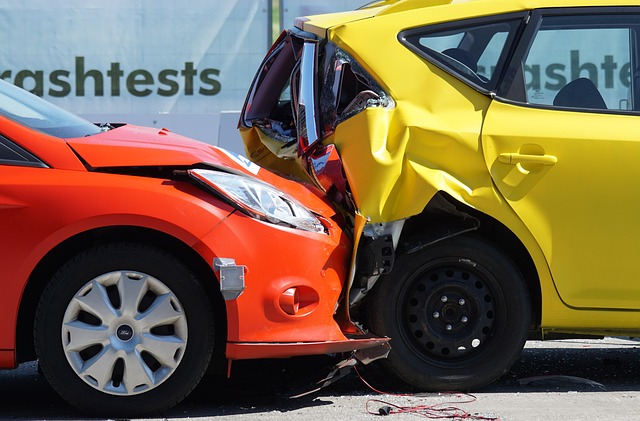Collision vs. Comprehensive Auto Insurance: Understanding the Key Differences. While collision insurance covers repairs after accidents, comprehensive insurance provides broader protection against theft, vandalism, natural disasters, and more. Collision focuses on physical damages from accidents, while comprehensive offers a holistic shield for unforeseen vehicle scenarios. Choosing between them depends on personal needs, risk assessment, and cost considerations, ensuring adequate coverage for specific vehicle situations.
When it comes to protecting your vehicle, choosing between collision and comprehensive insurance is crucial. This article breaks down these two essential types of auto coverage, helping you understand their distinct roles in safeguarding your investment. We’ll explore collision insurance’s focus on accidental damage and comprehensive insurance’s broader protection against unforeseen events. By the end, you’ll know how to make an informed decision based on your needs and budget, ensuring you select the right type for peace of mind on the road.
Understanding Collision Insurance: Coverage for Accidental Damage

Collision insurance is a component of auto coverage that protects against financial loss in the event of an accident. When you have collision coverage, your policy will help pay for repairs to your vehicle if it’s damaged due to a crash with another object or vehicle. This includes accidents involving other cars, as well as incidents like hitting a tree, a mailbox, or even a pedestrian. In essence, it covers accidental damage to your car.
Unlike collision insurance, comprehensive insurance is designed to protect you against a broader range of events that could cause damage to your vehicle, including theft, natural disasters (like floods or hail), and vandalism. While collision coverage typically picks up where your deductible leaves off, comprehensive insurance pays out regardless of fault or deductible amount, providing even more financial security for unexpected incidents beyond accidents. The choice between these two types of coverage depends on your specific needs and risk tolerance, but considering the potential for costly repairs or replacement after an accident makes collision insurance a significant aspect in comparing Collision vs. Comprehensive Auto Insurance.
Comprehensive Insurance: Protecting Against Unforeseen Events

Comprehensive insurance is designed to protect vehicle owners from unexpected events that could lead to significant financial losses. Unlike collision coverage, which primarily focuses on damage resulting from accidents involving another vehicle or stationary object, comprehensive insurance offers broader protection against a wider range of risks. These include events like theft, vandalism, natural disasters, and even animal-related incidents.
When you opt for comprehensive auto insurance, you’re essentially preparing yourself for the unforeseen. It covers not only the cost of repairing or replacing your vehicle but also provides peace of mind, knowing that unexpected circumstances won’t leave you stranded financially. This type of coverage is especially beneficial for those who drive in areas prone to high crime rates or severe weather conditions, ensuring they’re protected against potential losses that might not be covered by collision insurance alone.
What Does Collision Cover?

Collision insurance is a type of auto coverage that specifically targets physical damage to your vehicle. When you choose collision coverage, you’re protected in case of accidents, regardless of fault. This includes repairs or replacements for damages like dented fenders, cracked windshields, and collapsed hoods. It also covers other incidents such as rolling over, hitting a fixed object, or being hit by another vehicle.
In contrast to collision insurance, comprehensive auto insurance offers broader protection against various non-collision related events. This includes coverage for theft, vandalism, natural disasters like floods or earthquakes, and even damage caused by animals. While collision insurance focuses on the physical aspects of car accidents, comprehensive insurance takes a more holistic approach to protect you from a wider range of unexpected events that could impact your vehicle’s condition and functionality.
Common Scenarios Not Included in Collision Insurance

Collision insurance is designed to cover repairs or replacements when your vehicle experiences a direct collision with another object, such as another car, a tree, or a fence. However, it does not include scenarios that involve no physical impact to your vehicle. For instance, if your car is stolen, you’ll need comprehensive insurance to cover the loss since collision policies don’t protect against theft. Similarly, damage caused by weather events like floods, storms, or hail is also typically excluded from collision coverage. These situations are usually handled under comprehensive auto insurance policies, which offer a broader range of protection for various unforeseen circumstances.
Additionally, collision insurance does not cover damages resulting from accidents caused by human error, such as speeding, reckless driving, or drunkenness. Comprehensive insurance, on the other hand, can provide compensation for these types of incidents. It’s crucial to understand these differences when choosing between collision and comprehensive auto insurance to ensure you’re adequately protected in all possible scenarios involving your vehicle.
Benefits of Comprehensive Auto Insurance

Comprehensive auto insurance offers significant advantages over collision coverage alone, especially in terms of broader protection and peace of mind. One of its key benefits is that it covers a wide range of damages beyond just collisions. This includes theft, vandalism, natural disasters like floods or earthquakes, and even damage caused by animals. In essence, comprehensive insurance acts as a safeguard against unforeseen events, providing financial security for repairs or replacements not typically covered by collision insurance.
Additionally, comprehensive policies often include perks such as roadside assistance, rental car coverage during repairs, and, in some cases, discounts on medical payments if you’re injured in an accident. This makes it a compelling choice for drivers who value having every aspect of their driving experience protected. When considering collision vs. comprehensive auto insurance, the latter’s ability to offer a more comprehensive and protective layer makes it a wise decision for many.
Comparing Costs: Collision vs. Comprehensive

When comparing collision versus comprehensive auto insurance, one of the most significant factors to consider is cost. Both types of coverage protect your vehicle against different risks, but they have distinct pricing structures. Collision insurance is designed to cover repairs or replacements if your car is damaged in an accident, regardless of fault. This makes it relatively affordable since it primarily insures against physical damage. Comprehensive insurance, on the other hand, offers broader protection against a variety of non-collision events like theft, vandalism, natural disasters, and animal strikes. Given its wider range of coverage, comprehensive insurance tends to be more expensive than collision insurance.
Understanding these cost differences is crucial when selecting between collision and comprehensive. While comprehensive may offer more protection against unforeseen incidents, it comes at a higher price point. Collision insurance can be a more budget-friendly option for drivers who are primarily concerned with protecting their vehicle from accidents rather than other potential risks. Therefore, the decision between collision and comprehensive should align with your individual needs and financial situation.
Making the Right Choice: When to Select Each Type

When deciding between collision and comprehensive auto insurance, understanding the differences is key to making an informed choice. Collision coverage is designed to protect you financially in the event of a direct collision with another vehicle or object, such as a tree or fence. It repairs or replaces your vehicle, up to its actual cash value. This type of coverage is often required if you have a car loan, as most lenders mandate it to secure the loan.
Comprehensive insurance, on the other hand, offers broader protection against various risks beyond collisions. It covers damage from theft, natural disasters like storms or floods, vandalism, and even animal-related incidents. While collision insurance typically covers only accidents involving another vehicle, comprehensive provides peace of mind by protecting your vehicle in a wide range of scenarios. Choose collision if you’re primarily concerned about protecting your car from accidents, and opt for comprehensive if you want all-encompassing coverage for unexpected events.
